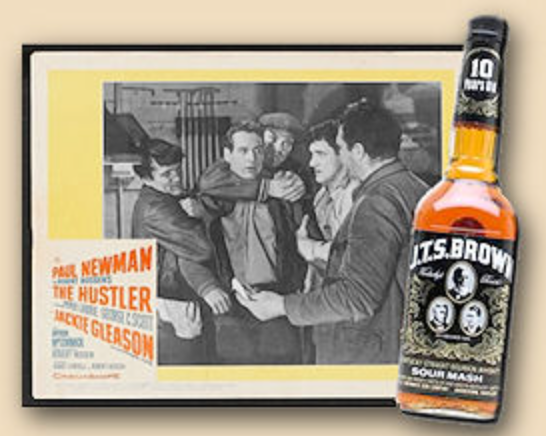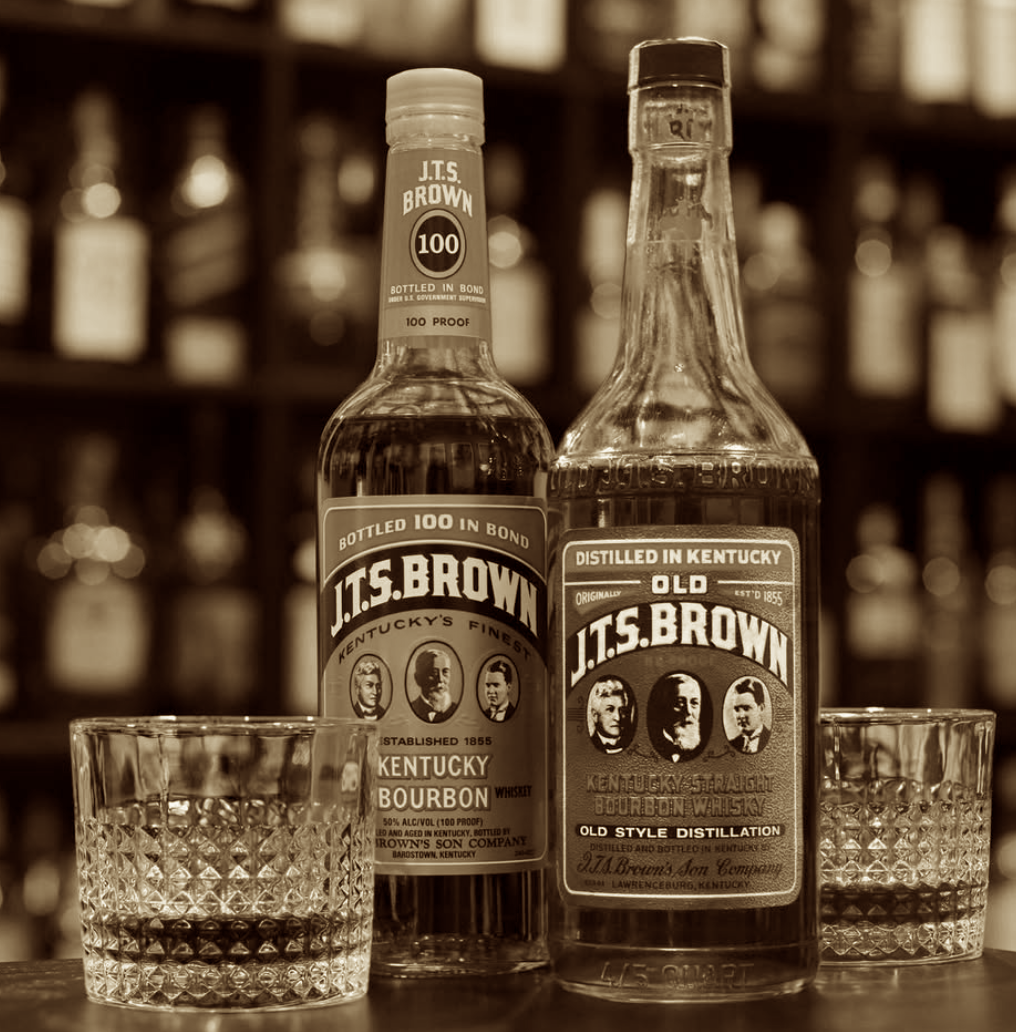Alvin & Bob Gould
Bob Gould: “From Brooklyn to Bourbon”
Alvin Arthur Gould and Robert “Bob” Gould were born into a world of change and opportunity. Their parents, Isaac and Bertha Gunshor, had immigrated to Brooklyn, New York, from Kiev, Russia, in search of a better life. Both brothers were born in Brooklyn—Robert in 1897 and Alvin in 1903—at a time when America was bustling with new ideas and promise. Though they entered the world as Gunshors, their parents soon changed the family surname to "Gould" to help them fit more easily into American society.
From a young age, Robert and Alvin took very different paths, though their lives would intersect again in remarkable ways.
As a young man, Robert served in the U.S. Navy during World War I. After the war, he moved to Cincinnati, Ohio, in 1933 and made it his permanent home. Just a few years later, in 1936, he started a whiskey brokerage business that would soon grow into something much larger. Bob Gould had a sharp business sense and a passion for quality bourbon. Over the years, he acquired several distilleries in Kentucky, including the well-known J.T.S. Brown Distillery in Lawrenceburg and the Dowling Distillery in Burgin.
Alvin, meanwhile, stayed in New York longer and lived a quieter life during his early years. In 1938, he married Barbara Parks, and in 1947, they welcomed their son, Alvin Robert Gould. Sadly, Barbara died in 1967, and later that year, Alvin married Norma Gould.
Though their lives had taken separate directions, in 1949, the two brothers came together for a venture that would make a lasting mark on American bourbon history. That year, they purchased the Anderson County Distillery in Tyrone, Kentucky, from the Ripy Brothers. Renaming it the J.T.S. Brown Distillery, it was given the designation DSP-KY-27 and began producing J.T.S. Brown Bourbon, soon to become one of America’s most respected bourbons. Interestingly, the Ripy family continued working at the distillery under the Goulds’ ownership, with E.W. Ripy Jr. serving as plant general manager until 1972.
In 1958, the Goulds also purchased the Old Joe Distillery in Lawrenceburg, Kentucky, which carried the designation DSP-KY-35. When Austin Nichols, a non-distiller producer, bought the J.T.S. Brown facility in 1972, the Goulds moved DSP-KY-27 to the Old Joe site. Austin Nichols was known for the Wild Turkey brand and often sourced bourbon from multiple distilleries in those days. Over time, however, they came to favor the quality produced by the Goulds’ operations.
In fact, the Gould’s bourbon was so prominent in American culture that it appeared in the classic film The Hustler (1961), when Paul Newman’s character, Fast Eddie, ordered “the cheap rot-gut whiskey”—a line widely understood to refer to J.T.S. Brown, which by then had become iconic.
Bob Gould was not only a successful businessman but also a committed philanthropist. In 1946, he established the Robert Gould Research Foundation with proceeds from one of his distillery sales. He funded research grants for universities across North America, focusing on human and animal nutrition. His charitable legacy lived on long after his death in 1987 at the age of 90.
Alvin’s later years were less smooth. In 1985, at the age of 82, he became the subject of a federal investigation. U.S. postal inspectors accused him of “laundering” 50 million used stamps that had been cleaned and illegally resold. Alvin, a lifelong stamp collector who claimed to have started the hobby at age 12, pleaded no contest. His attorney later said that his worsening diabetes and fragile health made a court battle too risky. Alvin ultimately received a suspended sentence, paid $47,000 in restitution, and was fined $5,000.
Despite the controversy, Alvin lived nearly another decade, passing away in Sarasota, Florida, on May 25, 1993.
From humble beginnings in Brooklyn to shaping a cornerstone of American whiskey history, Alvin and Robert Gould left behind more than just bottles and business deals—they left a story of ambition, resilience, and legacy, each brother carving his own mark on the American whiskey landscape.
Contributed by Tracy McLemore, Fairview, Tennessee






